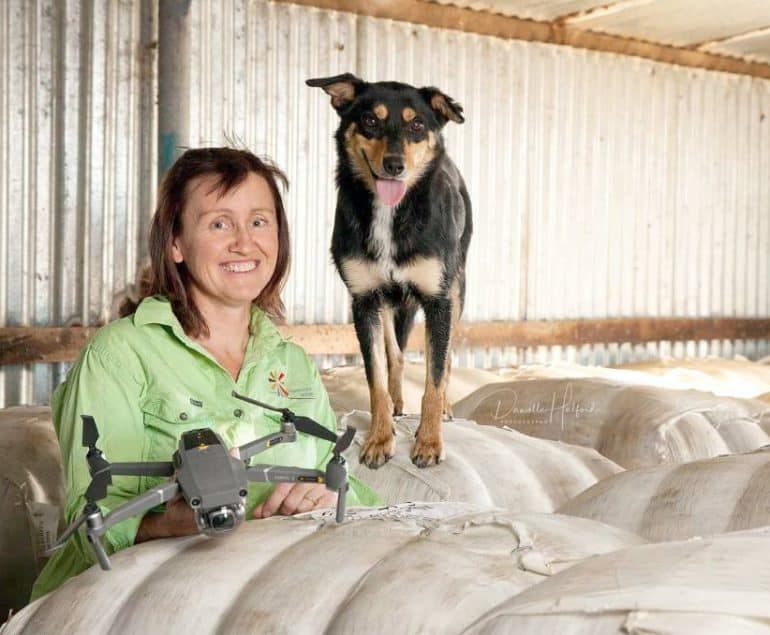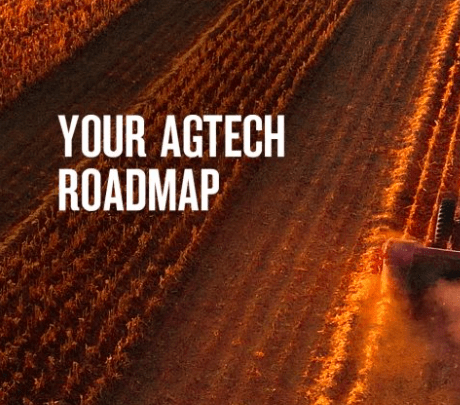MEDIA RELEASE
31 JANUARY 2022
AxisTech appointed as tech provider for Australian AgriFood Data Exchange project
Western Australian-based agrifood tech company, AxisTech, is excited to be appointed as the
vendor for the Grains Benchmarking Experiment of the Australian AgriFood Data Exchange.
The national collaborative project, which will have a demonstration day in March 2022, has been
designed for industry and is set to significantly enhance the data landscape for agriculture and
food businesses. It aims to create a trusted interconnected data highway for the Australian food supply
chain and will enable the secure exchange of data between organisations and agricultural and
agrifood businesses.
“We are delighted to be moving forward to the next stage of the Australian AgriFood Data
Exchange with the selection of four international and national technology partners, including
AxisTech, to deliver the initial test use cases, or experiments, for the data exchange,” said
Australian AgriFood Data Exchange chairman, the Honourable Andrew Robb AO.
The variety of these vendors across the four experiments will ultimately help inform a business
case to support the operational and funding requirements for a minimum viable Product.
“Demo Day on 30 March will provide the selected technology partners with an opportunity to
profile their solutions and demonstrate the experiments’ outcomes to the Australian agrifood
industry.”
The Grains Benchmarking Experiment is one of four that will test the viability and feasibility of
different methods of data exchange, technology vendors and sharing data. AxisTech will be
utilising their AxisStream data management platform for the experiment.
AxisStream is a data management solution where whole of farm or whole of business data can
be ingested, standardised and stored in a data store that is owned and controlled by the
individual business.
AxisStream aims to make data within agrifood fair and FAIR (Findable, Accessible,
Interoperable and Reusable). These FAIR data principles have applicability across
any commodity type and production system regardless of size or scale and encompass farms,
agribusinesses, food and beverage processors, grower groups, consultants, RDC’s and
government, academic and industry research.

The FAIR data principles are not a framework that constitutes free or freely shared data, nor are
they levers for coercing producers or businesses into sharing data. The principles are about
evolving and guiding capability, capacity and preparedness and ensuring there is sufficient
controls to allow for active and willing consent.
AxisStream is the ‘digital building block’ for the management of data as it enables data reuse –
internally for the business – including visualisation, insights and analysis; and then external
reuse such as the Australian AgriFood Data Exchange.
AxisTech managing director Wes Lawrence said the first step in the Grains Benchmarking
Experiment is to get participating producers onboarded and their experiment data connected to
AxisStream.
“Once data is stored and organised in an individual data store, it creates reusability of data.
Secondly, this enables data to be transacted in order to conduct the benchmarking activity, with
a view to creating benefits that have been identified around soil ameliorants and fertiliser
applications, as well as understanding water use efficiencies, fertiliser efficiencies etc,” Mr
Lawrence said.
“A unique piece that we will be doing with the experiment is to engage with individual producers
and grower groups to have a key role in the process.”
“This will reinforce the role grower groups have in supporting innovation for their growers, but
also acting as gatekeepers for their growers by assisting them with and engaging in outside
projects in a safe way for their business.”
Mr Lawrence said engaging with grower groups to act as a conduit between farmers and data
exchange will also aid in the project’s scalability. WA’s Grower Group Alliance and the
Department of Primary Industries and Regional Development are among the partners in the
Australian AgriFood Data Exchange project.
Initial funding for the project has been received from the Australian Government, Meat &
Livestock Australia, Charles Sturt University (CSU), the Food and Agribusiness Growth Centre,
Fisheries Research Development Corporation, the Western Australian and Victorian
Governments, the Commonwealth Scientific and Industrial Research Organisation (CSIRO),
and Australian Wool Innovation.
CSU professor and working group lead for the Grains Benchmarking Experiment, Chris
Blanchard said although the use of data and analytics is becoming more widespread across
agricultural industries and institutions, there was still a great deal of untapped potential for the
role that data could have in the sector.
“The agriculture industry is held back by the lack of a consolidated data platform that combines
multiple data sets from multiple data sources in real time,” Prof Blanchard said.
“Farmers now have the ability to capture rich sets of data that relate to their farming enterprises.
However, they are currently not maximising the benefits of this data as it is often stored in
different locations and formats.
Prof Blanchard said the benefits of a national industry-wide data exchange would be far
reaching across the whole supply chain.
“Improved curation of agriculture related data will assist farmers to make ‘in-season’ decisions
to maximise their profitability,” he said.
“Farm-derived data can also be used to streamline compliance and marketing processes which
will improve profitability along the whole supply chain.”
Belinda Lay, who is a farmer from Esperance, Western Australia and a participant in the
Australian AgriFood Data Exchange Grains Benchmarking Experiment said the experiment was
the next phase in utilising data as data ownership and control had already been tested and
proven with the AxisStream data management platform.
“Having a transaction framework will provide producers with another income source, enable
industry-wide benchmarking, influence research and contribute to the overall progression of the
industry,” Ms Lay said.
“If producers see they can gain more valuable insight from their data when it is able to be linked
to other data points there will an increase the adoption of data sharing for commercial and
research benefits.”
Some of the key opportunities the Australian AgriFood Data Exchange seeks to unlock include:
- Benefits to producers for decision making including benchmarking to identify gaps and opportunities for improved performance pre harvest, in the grain sector – Traditionally benchmarking has occurred at the conclusion of a season. The data exchange framework provides the opportunity to conduct mid-season benchmarking, comparison and analysis for better producer decision making.
- Standardisation and consistency in data assets – Due to the siloed nature for data across the agrifood supply chain, data is named, defined and managed by multiple entities, resulting in a lack of standardisation and consistency. Through the Data Exchange there will be a level of governance and quality assurance applied, resulting in an increased level of consistency and accuracy.
- Fluidity to build use cases which benefit multiple parties across the agrifood supply chain – As the Data Exchange matures, the ability to deploy use cases will become easier and will result in reduced investment required for future use cases.
- Accessibility of data assets to provide benefits back to industry participants – Increased quality of stakeholders’ decision making, resulting in greater accuracy and increased benefits, such as being able to understand end-to-end traceability across the supply chain as all data points will be captured.
- Increased transparency on key data assets for regulatory and compliance purposes – The Data Exchange will streamline the process for regulatory reporting and compliance as relevant data will be transparent and accessible.
- Connecting disparate data sources – Being able to access multiple data sources through one platform will minimise effort used to harvest disparate data sources for a single view of data assets. In turn, this will unlock capacity and effort to be redirected towards value-add activities.
A demonstration day will be held on 30 March 2022 in Melbourne, where the teams will show case the outcome of their work in the experiments and share the lessons learned and benefits unlocked.
AxisTech are still accepting individual producers and grower groups to participate in the Grains Benchmarking Experiment. If you are interested, please contact AxisTech at info@axistech.co
For more information: www.ozagdx.com.au
Contact:
Wes Lawrence
Managing director
AxisTech
0411 311 622
wes@axistech.co

 The FAIR data principles are not a framework that constitutes free or freely shared data, nor are
they levers for coercing producers or businesses into sharing data. The principles are about
evolving and guiding capability, capacity and preparedness and ensuring there is sufficient
controls to allow for active and willing consent.
AxisStream is the ‘digital building block’ for the management of data as it enables data reuse –
internally for the business – including visualisation, insights and analysis; and then external
reuse such as the Australian AgriFood Data Exchange.
AxisTech managing director Wes Lawrence said the first step in the Grains Benchmarking
Experiment is to get participating producers onboarded and their experiment data connected to
AxisStream.
“Once data is stored and organised in an individual data store, it creates reusability of data.
Secondly, this enables data to be transacted in order to conduct the benchmarking activity, with
a view to creating benefits that have been identified around soil ameliorants and fertiliser
applications, as well as understanding water use efficiencies, fertiliser efficiencies etc,” Mr
Lawrence said.
“A unique piece that we will be doing with the experiment is to engage with individual producers
and grower groups to have a key role in the process.”
“This will reinforce the role grower groups have in supporting innovation for their growers, but
also acting as gatekeepers for their growers by assisting them with and engaging in outside
projects in a safe way for their business.”
Mr Lawrence said engaging with grower groups to act as a conduit between farmers and data
exchange will also aid in the project’s scalability. WA’s Grower Group Alliance and the
Department of Primary Industries and Regional Development are among the partners in the
Australian AgriFood Data Exchange project.
Initial funding for the project has been received from the Australian Government, Meat &
Livestock Australia, Charles Sturt University (CSU), the Food and Agribusiness Growth Centre,
Fisheries Research Development Corporation, the Western Australian and Victorian
Governments, the Commonwealth Scientific and Industrial Research Organisation (CSIRO),
and Australian Wool Innovation.
CSU professor and working group lead for the Grains Benchmarking Experiment, Chris
Blanchard said although the use of data and analytics is becoming more widespread across
agricultural industries and institutions, there was still a great deal of untapped potential for the
role that data could have in the sector.
“The agriculture industry is held back by the lack of a consolidated data platform that combines
multiple data sets from multiple data sources in real time,” Prof Blanchard said.
“Farmers now have the ability to capture rich sets of data that relate to their farming enterprises.
However, they are currently not maximising the benefits of this data as it is often stored in
different locations and formats.
Prof Blanchard said the benefits of a national industry-wide data exchange would be far
reaching across the whole supply chain.
“Improved curation of agriculture related data will assist farmers to make ‘in-season’ decisions
to maximise their profitability,” he said.
“Farm-derived data can also be used to streamline compliance and marketing processes which
will improve profitability along the whole supply chain.”
Belinda Lay, who is a farmer from Esperance, Western Australia and a participant in the
Australian AgriFood Data Exchange Grains Benchmarking Experiment said the experiment was
the next phase in utilising data as data ownership and control had already been tested and
proven with the AxisStream data management platform.
“Having a transaction framework will provide producers with another income source, enable
industry-wide benchmarking, influence research and contribute to the overall progression of the
industry,” Ms Lay said.
“If producers see they can gain more valuable insight from their data when it is able to be linked
to other data points there will an increase the adoption of data sharing for commercial and
research benefits.”
Some of the key opportunities the Australian AgriFood Data Exchange seeks to unlock include:
The FAIR data principles are not a framework that constitutes free or freely shared data, nor are
they levers for coercing producers or businesses into sharing data. The principles are about
evolving and guiding capability, capacity and preparedness and ensuring there is sufficient
controls to allow for active and willing consent.
AxisStream is the ‘digital building block’ for the management of data as it enables data reuse –
internally for the business – including visualisation, insights and analysis; and then external
reuse such as the Australian AgriFood Data Exchange.
AxisTech managing director Wes Lawrence said the first step in the Grains Benchmarking
Experiment is to get participating producers onboarded and their experiment data connected to
AxisStream.
“Once data is stored and organised in an individual data store, it creates reusability of data.
Secondly, this enables data to be transacted in order to conduct the benchmarking activity, with
a view to creating benefits that have been identified around soil ameliorants and fertiliser
applications, as well as understanding water use efficiencies, fertiliser efficiencies etc,” Mr
Lawrence said.
“A unique piece that we will be doing with the experiment is to engage with individual producers
and grower groups to have a key role in the process.”
“This will reinforce the role grower groups have in supporting innovation for their growers, but
also acting as gatekeepers for their growers by assisting them with and engaging in outside
projects in a safe way for their business.”
Mr Lawrence said engaging with grower groups to act as a conduit between farmers and data
exchange will also aid in the project’s scalability. WA’s Grower Group Alliance and the
Department of Primary Industries and Regional Development are among the partners in the
Australian AgriFood Data Exchange project.
Initial funding for the project has been received from the Australian Government, Meat &
Livestock Australia, Charles Sturt University (CSU), the Food and Agribusiness Growth Centre,
Fisheries Research Development Corporation, the Western Australian and Victorian
Governments, the Commonwealth Scientific and Industrial Research Organisation (CSIRO),
and Australian Wool Innovation.
CSU professor and working group lead for the Grains Benchmarking Experiment, Chris
Blanchard said although the use of data and analytics is becoming more widespread across
agricultural industries and institutions, there was still a great deal of untapped potential for the
role that data could have in the sector.
“The agriculture industry is held back by the lack of a consolidated data platform that combines
multiple data sets from multiple data sources in real time,” Prof Blanchard said.
“Farmers now have the ability to capture rich sets of data that relate to their farming enterprises.
However, they are currently not maximising the benefits of this data as it is often stored in
different locations and formats.
Prof Blanchard said the benefits of a national industry-wide data exchange would be far
reaching across the whole supply chain.
“Improved curation of agriculture related data will assist farmers to make ‘in-season’ decisions
to maximise their profitability,” he said.
“Farm-derived data can also be used to streamline compliance and marketing processes which
will improve profitability along the whole supply chain.”
Belinda Lay, who is a farmer from Esperance, Western Australia and a participant in the
Australian AgriFood Data Exchange Grains Benchmarking Experiment said the experiment was
the next phase in utilising data as data ownership and control had already been tested and
proven with the AxisStream data management platform.
“Having a transaction framework will provide producers with another income source, enable
industry-wide benchmarking, influence research and contribute to the overall progression of the
industry,” Ms Lay said.
“If producers see they can gain more valuable insight from their data when it is able to be linked
to other data points there will an increase the adoption of data sharing for commercial and
research benefits.”
Some of the key opportunities the Australian AgriFood Data Exchange seeks to unlock include:






